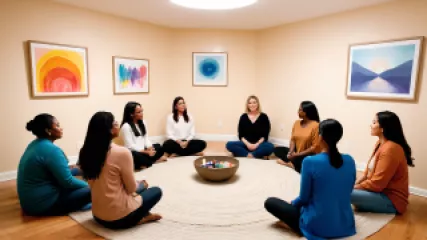Top 10 Counseling Options for Mental Health After Bullying
Bullying can have a profound impact on an individual's mental health, leading to long-lasting emotional and psychological consequences. It is essential for those who have experienced bullying to seek counseling and therapy to overcome the trauma and regain their mental well-being. In this article, we will explore the top 10 counseling options available for individuals dealing with the effects of bullying.
1. Cognitive Behavioral Therapy (CBT)
Cognitive Behavioral Therapy (CBT) is a widely recognized and effective form of therapy for individuals struggling with the aftermath of bullying. This therapy focuses on identifying and changing negative thought patterns and behaviors that contribute to mental health issues. CBT helps individuals develop healthier coping mechanisms, build self-esteem, and manage anxiety and depression.
2. Dialectical Behavior Therapy (DBT)
Dialectical Behavior Therapy (DBT) is another evidence-based therapy that can be beneficial for individuals coping with the effects of bullying. DBT combines elements of CBT with mindfulness practices to help individuals regulate their emotions, improve interpersonal relationships, and develop distress tolerance skills. This therapy is particularly useful for individuals who struggle with self-harm or suicidal ideation.
3. Eye Movement Desensitization and Reprocessing (EMDR)
Eye Movement Desensitization and Reprocessing (EMDR) is a specialized therapy often used to treat post-traumatic stress disorder (PTSD). It can also be effective in addressing the trauma caused by bullying. EMDR involves guided eye movements or other forms of bilateral stimulation to process distressing memories and replace negative beliefs with positive ones. This therapy aims to reduce the emotional intensity associated with past traumatic experiences.
4. Narrative Therapy
Narrative Therapy focuses on helping individuals reframe their personal narratives surrounding the bullying experience. By reshaping their stories, individuals can gain a sense of empowerment and create alternative narratives that promote healing and resilience. This therapy encourages individuals to view themselves as separate from the negative impact of bullying, allowing them to regain control of their lives.
5. Art Therapy
Art Therapy utilizes various artistic mediums to explore emotions, express experiences, and promote healing. This form of therapy can be particularly beneficial for individuals who struggle to verbalize their emotions or find it challenging to engage in traditional talk therapy. Through art therapy, individuals can tap into their creativity and gain insight into their thoughts and feelings related to the bullying experience.
6. Group Therapy
Group Therapy provides a supportive environment where individuals who have experienced bullying can connect with others who have had similar experiences. Sharing stories and listening to others' perspectives can foster a sense of belonging and reduce feelings of isolation. Group therapy also offers opportunities for individuals to learn from one another, develop coping strategies, and build lasting friendships.
7. Family Therapy
Bullying doesn't only affect individuals; it often has an impact on their families as well. Family Therapy aims to improve communication, strengthen relationships, and provide support to the entire family unit. By involving family members in the healing process, this therapy helps create a conducive environment for recovery and growth.
8. Mindfulness-Based Stress Reduction (MBSR)
Mindfulness-Based Stress Reduction (MBSR) combines mindfulness meditation, yoga, and mind-body awareness to help individuals manage stress and enhance overall well-being. This therapy can be beneficial for individuals dealing with the emotional aftermath of bullying, as it promotes self-compassion, acceptance, and non-judgmental awareness of thoughts and emotions.
9. Trauma-Focused Cognitive Behavioral Therapy (TF-CBT)
Trauma-Focused Cognitive Behavioral Therapy (TF-CBT) is specifically designed to address the impact of trauma on mental health. This therapy focuses on providing individuals with the skills and tools necessary to process the traumatic experiences associated with bullying. TF-CBT incorporates elements of CBT, play therapy, and family therapy to facilitate healing.
10. Online Therapy
In today's digital age, online therapy has become increasingly popular and accessible. Online therapy platforms offer a range of counseling options for individuals dealing with the effects of bullying. These platforms provide access to licensed therapists who can provide support and guidance remotely, allowing individuals to receive therapy from the comfort of their own homes.
Remember, each individual's journey towards healing is unique, and what works for one person may not work for another. It's important to find a counseling option that resonates with your needs and preferences. Seeking professional help is a crucial step towards overcoming the mental health challenges caused by bullying. With the right support and therapy, individuals can regain their self-confidence, heal from the trauma, and build a brighter future.






